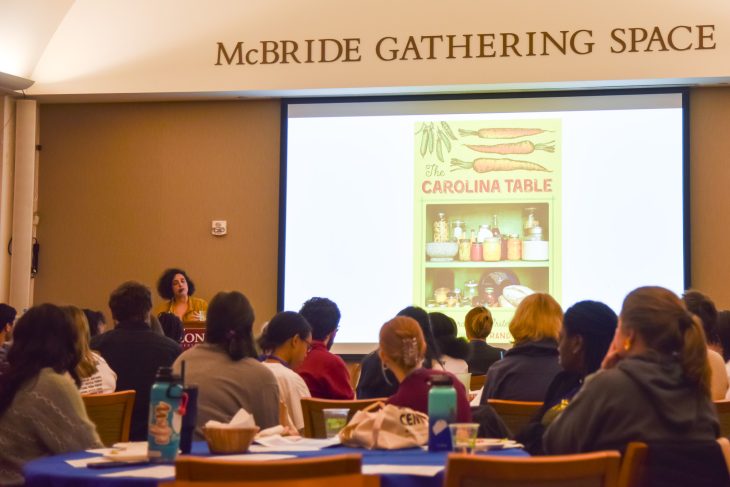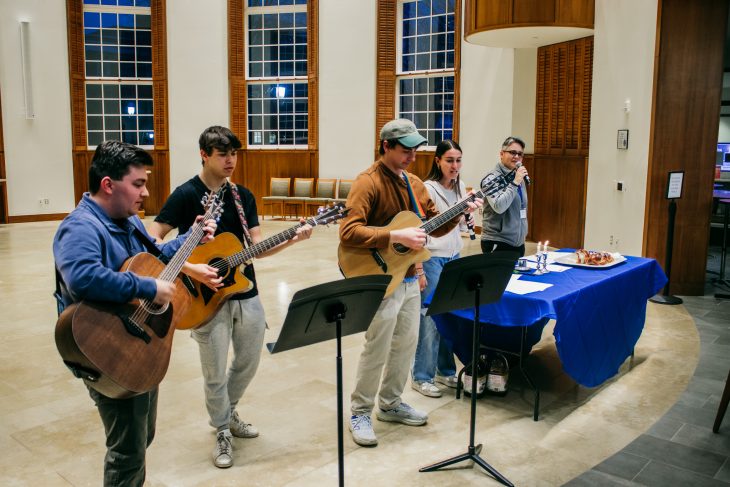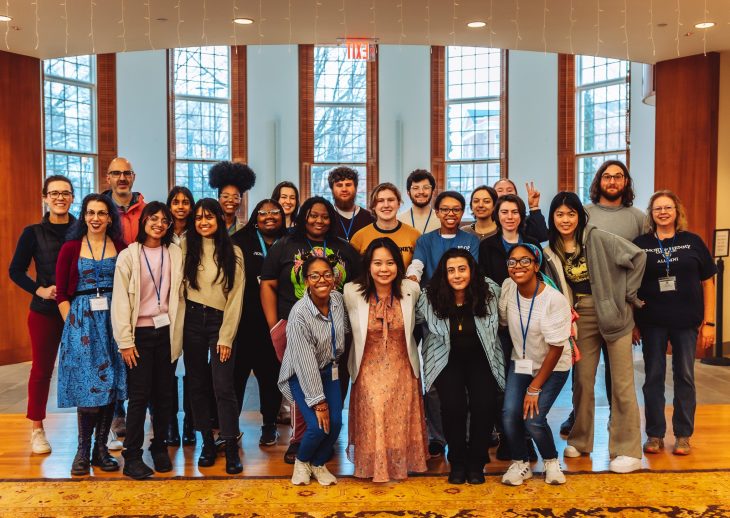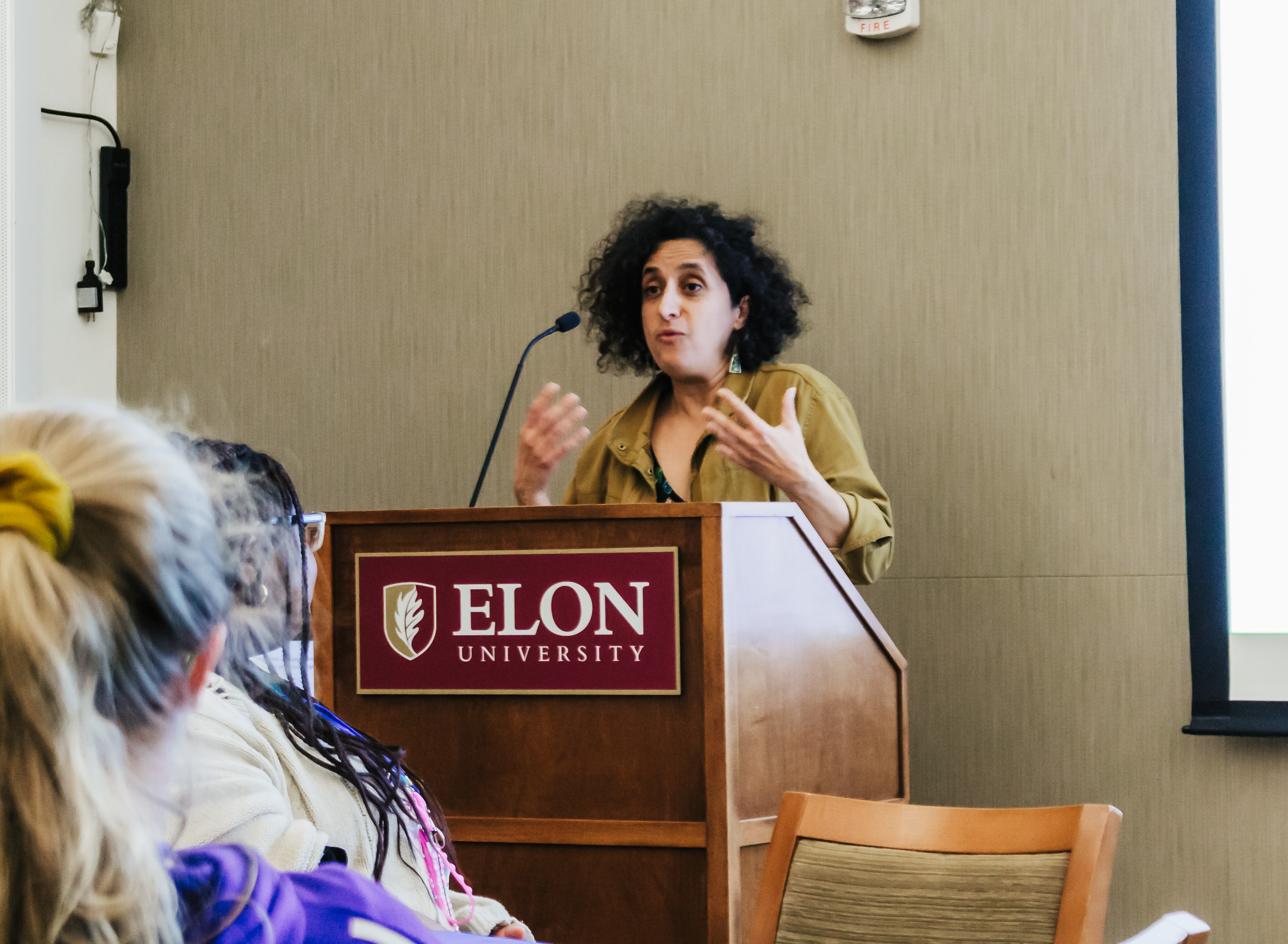Students, faculty and members of the Elon community entered the McBride Gathering Space on Friday, Feb. 9, to learn more about journeys of refugees from all around the world – as well as right down the road in Greensboro.
During her keynote address during the student-led Ripple Conference on Feb. 9, Professor Diya Abdo of Guilford College posed a question that at first seems simple, but can actually be very complex.
“So, where do you call home, and why?” Abdo asked the audience in the McBride Gathering Space in the Numen Lumen Pavilion.

It’s a question that can become central to international refugees who are displaced from the communities and countries where they were born and grew up. It can also be important to consider for those whose lives have taken them from place to place by choice.
The question and how it relates to supporting refugees was just one of the questions Abdo posed during her address, which was a highlight during the three-day interfaith conference on Elon’s campus that is organized and led by Elon students. Now in its ninth year, The Ripple Conference encouraged participants to engage in genuine and fun interfaith work, explore their own identities, ask tough questions and further engage in sustained interfaith on their own campuses.
Abdo has certainly had many homes during her life so far. She works as the Lincoln Financial Professor of English in the Department of English and Creative Writing at Guilford College in Greensboro. She was born in Jordan and is the first daughter and granddaughter of Palestinian refugees. Though she came to the United States to study American literature in 1996, the trajectory of her academic career shifted after the Sept. 11, 2001, attacks on the World Trade Center. She moved her focus towards Arabic feminism and moved back to Jordan to teach. Eventually, she returned to the United States in 2008 to take a teaching position at Guilford College.

Abdo’s presentation was designed to promote discussion among community members, who sat together at tables, ate dinner and conversed. She segmented her keynote address to pepper in larger themed questions to get the audience thinking and communicating on their own personal perspectives with one another.
Amid the 2015 Syrian refugee crisis, Abdo said she asked herself, “What is our responsibility as teachers, students, and administrators of higher learning, and what is our complicity as institutions built on the lands of the dispossessed and displaced?”
In forming a response to this question, Abdo said she determined the importance of a college campus’s role in creating a safe space, void of violence and difficulty, for students and people alike. She began to think about the ways in which colleges should use their resources to promote their stated values.
“If at Guilford College, we were saying ‘Our stated values are peace, justice, diversity, equity and community’, what were we doing with our resources to steward them in ways that aligned precisely with those values?” Abdo asked.

Guilford College eventually co-designed an initiative called Every Campus a Refuge to host refugees on their campus. Since January 2016, the campus has hosted 90 refugees coming from Syria, Sudan, Uganda, Central African Republic, Afghanistan and even more eastern countries. Other larger campuses in California have joined the initiative and have hosted more than 500 refugees.
While much of the effort to support international refugees is guided by the federal government, Abdo acknowledged the importance of the work in local communities for initiatives like Every Campus a Refuge to be made possible. “I feel very proud to be a North Carolinian and to be a part of this effort here in Greensboro.” Abdo said.



